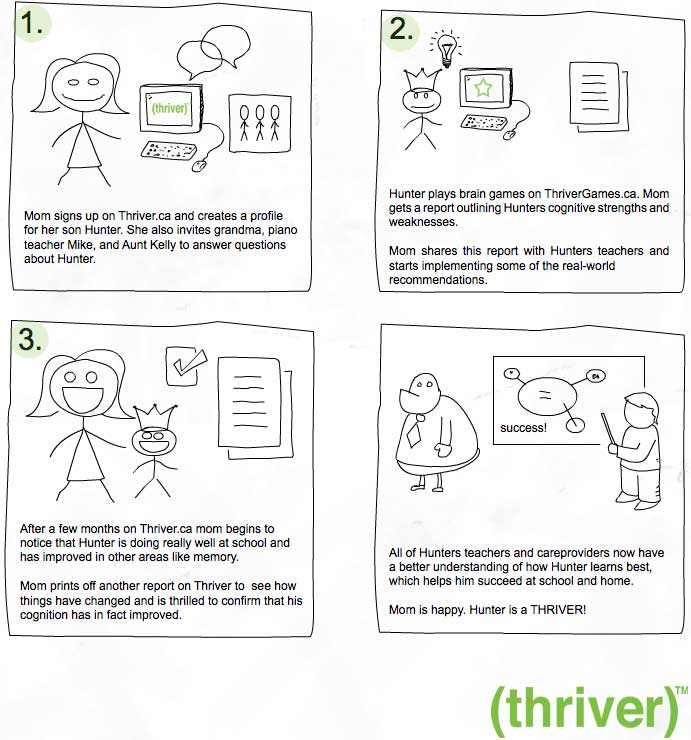Toronto-based educational startup Thriver has opened a call for participants to join a research study. The goal is to gain some insight and even controlled data behind their hunch that video games can play an important role in augmenting learning. The startup is looking for 350 families to participate and are specifically looking for kids ages six to 16.
“If you stop long enough to think about it, the magic and mystery of the human brain is awe-inspiring. We can do some pretty amazing things – teach ourselves to play a musical instrument, learn new languages, and master complex mathematical calculations,” wrote the startup. “The purpose of this market research study is to determine product viability, validate the Thriver™ platform and identify areas that we can improve our product and be of greater value to parents. Market validation and user experience require real world testing of incidence and intent among the population, therefore we are seeking parents of school aged children who want to learn about their child’s cognition.”
Thriver is a platform that helps parents identify their child’s unique cognitive strengths and weaknesses in specific cognitive areas, “all of which (when exercised) positively impact academic performance and overall brain functioning”.
Thriver needs the 350 families to commit one hour per week of both parent’s and children’s time for six weeks. The risks associated with the study are minimal as children will be asked to play simple computer games that are not considered stressful or anxiety provoking. Families who participate will receive:
- A detailed report (a $50 value) outlining your child’s cognitive weaknesses, identified through his/her game play and containing real-world recommendations for improvement.
- 6-months of complimentary access and gameplay.
- Children will be automatically entered to win weekly draws (5 per week) to win an iPod Nano, for every set of five games played.
- Upon completion of the study, parents will automatically be entered to win be one of three grand prize draws for a $100 HomeSense gift card, which we will randomly select at the conclusion of the 6-week study period.
The startup itself is trying to empower parents to learn about their children’s specific areas of learning. It calls its platform an innovative learning platform designed by a paediatric neuropsychologist, targeting nine important cognitive skill sets that play roles in children’s “academic performance, happiness and overall mental wellbeing”.
It then uses online learning games to allow children to showcase their strengths and weaknesses, while parents and teachers can fill out progress reports. “Research has shown that online gaming can be a powerful tool in reshaping and enhancing visual-motor, spatial, visual and verbal skills, as well as one’s ability to self-regulate, make appropriate decisions and engage in problem solving,” wrote the startup. “Our learning games are cognitively responsible and help target specific cognitive areas that can be improved over time by engaging in certain tasks that we help identify.”
Parents sign up for an account on Thriver and then invite other people in the child’s life- like teachers (including piano and other teachers), family and other influential people to fill out reports on the child. The child then plays the online games and parents can share the online reports generated as a result, to teachers and others. This way the child will be influenced to make real-world changes as a result. The startup assumes the children will perform well as a result and teachers will then have a clearer understanding of the child’s strengths and weaknesses.
It would be interesting to see how the platform responds to a child whose learning curve is different then most, or takes longer for a growth spurt in intelligence and reasoning. If the child doesn’t perform as expected over a period of a few months I wonder how the platform can work positively with them. It’s looks as though the new research study should run into scenarios like that and ideally, make for an improved platform for the startup.
Any parents interested in the study should sign up here before November 5.



